

· By Lorea Lastiri
Which Vitamin D Should You Choose? Expert Insights to Guide Your Decision!
Besides playing an essential role in maintaining healthy teeth and bones, vitamin D keeps your immune system healthy.
While your body can synthesize vitamin D when exposed to sunlight, it is often not enough, and most people need dietary supplementation.
However, with so many forms of vitamin D available, choosing the right one becomes crucial to get the most benefit from your supplements.
The most common forms of vitamin D supplements are Ergocalciferol (D2) and Cholecalciferol (D3).
Taking both forms of vitamin D can offer health benefits. However, research has shown that vitamin D3 is more effective in maintaining the overall vitamin D levels in the blood.
Let's take a closer look at these vitamin D forms and see which is the best when used as a supplement.
What are the different types of vitamin D?
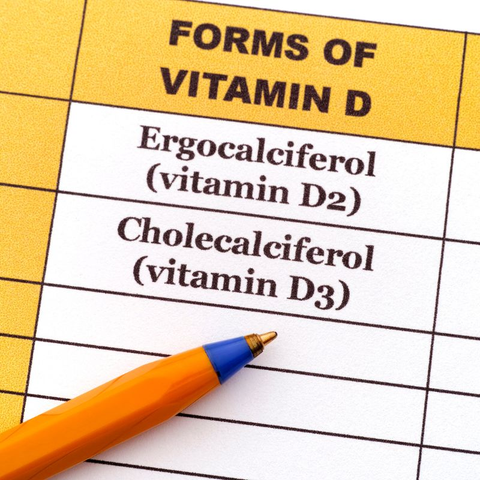
When exposed to the sun's UV rays, your body can synthesize small amounts of vitamin D. However, when it comes to supplementing through diet, not all sources have the same type of vitamin D.
The different forms of Vitamin D are:
- Vitamin D2: It is a form of vitamin D found in plant and fungal sources.
- Vitamin D3: Chemically, vitamin D3 is more similar to the vitamin D produced naturally in our body in response to sunlight.
- Synthetic vitamin D: In addition to vitamin D2 and D3, synthetic forms of the vitamin are also used in some vitamin D supplements and fortified foods. These forms are custom-designed to either have specific effects or an increased bioavailability.
What is the best form of vitamin D?
Now, with these different forms of dietary supplements available, the real question is, which one should you choose?
Studies have shown that supplements with vitamin D2 or vitamin D3 are best to maintain blood levels.
When you consider the body of scientific evidence, it becomes quite clear that vitamin D3 is the better option. Studies have consistently shown that vitamin D3 is more effective in maintaining high levels of 25-hydroxy vitamin D, the bioactive form of the vitamin in the blood.
The superior efficacy of vitamin D3 is often attributed to its greater affinity to vitamin D binding protein, which is responsible for carrying the vitamin in the blood.
This efficacy of vitamin D3 is more crucial during the winter months when the sunlight is limited, and the biogenic vitamin D synthesis is highly reduced.
Besides, as vitamin D3 is chemically similar to the naturally produced vitamin D in the body, it is more bioactive than vitamin D2 or other synthetic forms.
All these factors make vitamin D3 the ideal choice for improving bone health, aiding calcium absorption, and improving the immune system.
If you are looking for a high-purity vitamin D3 supplement that is 100% natural and easy to absorb, consider WhyNotNatural’s Organic Vitamin D3 Liquid Drops with K2.
The specially formulated sublingual liquid supplement makes vitamin D supplementation easy. With 5,000IU vitamin D3 per dose, it helps quickly build up the vitamin D level in your blood, supporting your immune system and bone health.
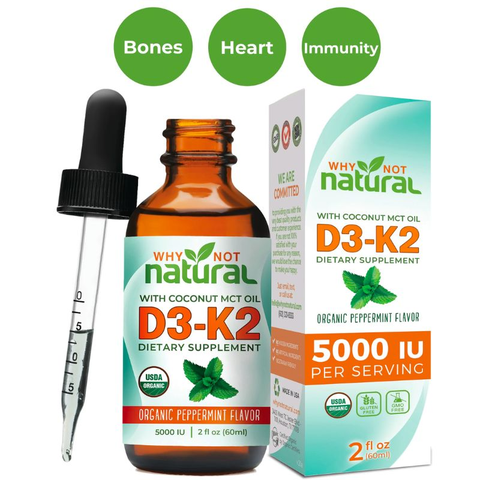
Understanding vitamin D2
Vitamin D2, also called ergocalciferol, is a form of the sunshine vitamin found in plants and fungi. It plays a crucial role in improving calcium absorption from your diet and promotes bone health and muscle function.
It is commercially produced by irradiating yeast and fungi that contain a compound called ergosterol, a precursor of vitamin D.
Ergocalciferol is commonly used to fortify foods and is even available as a dietary supplement. When you ingest vitamin D2, it is absorbed in the system and helps to maintain the level of serum vitamin D.
However, several studies have shown that it is not as effective in this function as the other form of vitamin D- cholecalciferol (vitamin D3).
Unlike its other natural counterpart, vitamin D2, ergocalciferol is not made in the body and is often consumed through vitamin D supplements.
While it is not as effective as vitamin D3 in improving the circulating levels of the biologically active form of vitamin D in the blood, it has several benefits and makes a good supplement.
What conditions are treated by vitamin D2?
Vitamin D2 is often prescribed to treat several medical conditions. Some of them include the following:
Vitamin D deficiency
One of the most common reasons for doctors to prescribe vitamin D2 as a dietary supplement is to treat vitamin D deficiency.
The deficiency can occur due to several reasons, from insufficient dietary intake of vitamin D to limited exposure to the sun.
Some of the symptoms of vitamin D deficiency include bone pain, muscle weakness, and, in some cases, bone deformities.
When you supplement with vitamin D2, the levels of active vitamin D in your blood gradually increase, alleviating the symptoms over time.
Rickets
It is a specific form of vitamin D deficiency observed in children. The condition often leads to weak and soft bones, resulting in characteristic bow legs.
The primary reason for developing this condition in childhood is the lack of vitamin D in the diet.
Vitamin D supplements can help restore adequate vitamin D levels and improve bone strength.
Osteomalacia
It is the adult version of rickets, where the bones become soft and brittle due to vitamin D deficiency. The condition is characterized by bone pain, muscular weakness, and an increased risk of fractures.
Vitamin D3 supplements prevent bone demineralization and improve the absorption of calcium.
Hypoparathyroidism
It is a rare health condition characterized by low levels of parathormone, which is essential to regulate the level of calcium and phosphate in the body.
The condition can cause an extreme decline in calcium levels in the body—hypocalcemia.
Supplementing with vitamin D2 can resolve the symptoms by improving calcium absorption.
What happens if I take vitamin D2 daily?
Incorporating vitamin D2 into your diet can positively impact your health and quality of life, especially if you are deficient in vitamin D.
By ensuring that your body has an adequate amount of this essential vitamin, you can prevent the onset of several health conditions affecting your bones and muscles.
Adequate levels of vitamin D2 also help your immune system function properly, giving you a better chance to ward off infections.
Numerous studies have shown that if you follow the recommended daily dosage, supplementation with vitamin D2 is perfectly safe.
Is vitamin D2 good for everyone?
Vitamin D2 is a great supplement for those with vitamin D deficiency or limited sun exposure. It helps you maintain healthy bones and muscles and improves your immunity as well.
Despite the benefits of vitamin D2 supplementation, it is important to understand that the impact of this supplementation varies significantly among different populations.
People in sunny regions who get enough exposure to the UVB rays of the sun or have a diet rich in vitamin D might find supplementation unnecessary.
For such individuals, over-supplementation with vitamin D2 can even lead to toxicity.
It can precipitate nausea and muscle weakness and, in extreme cases, can adversely affect the health of your kidneys.
Who should avoid taking vitamin D2?
Specific individuals should exercise caution when supplementing with vitamin D2 due to potential side effects.
Primarily, people with high levels of calcium in their blood (hypercalcemia) should steer clear of vitamin D2 supplementation. As vitamin D2 increases the absorption rate of calcium from the diet, it can exacerbate the calcium levels and precipitate toxicity.
Another class of people who should avoid vitamin D supplements are people with chronic kidney disease.
The dietary vitamin D2 needs to be converted to its active form in the body by your kidneys.
If your kidney function is compromised, this conversion can't occur efficiently. It can result in the accumulation of vitamin D2 in the body, leading to potentially toxic effects.
Lastly, if you already have enough vitamin D in your body, there is no need to supplement. It is important that you talk to your healthcare provider before starting any dietary supplementation.
Your doctor might ask you to check your vitamin D levels before suggesting supplementation.
Can I take vitamin D2 while pregnant?
Vitamin D2 is a safe supplement; you can take it while pregnant. However, discussing with your healthcare provider before starting any supplement, including vitamin D, during pregnancy or lactation is always safest.
While vitamin D supplementation can help in calcium absorption and improve your bone health during pregnancy, the exact dosage you need can vary.
The American College of Obstetrics and Gynecologists (ACOG) provides guidelines on the consumption of vitamin D2 during pregnancy.
Before embarking on any supplementation, you must also discuss your supplantation regimen with your OBGYN.
What are the potential side effects of vitamin D2?
While vitamin D2 supplementation is generally considered safe, there are potential side effects that you should be aware of.
- Hypercalcemia is a health condition characterized by an excess calcium level in your blood. As vitamin D2 increases the absorption of calcium from your diet, it can potentially cause this condition. Symptoms of hypercalcemia include nausea, vomiting, weakness, and frequent urination.
- Kidney stones: The increased calcium levels can also cause renal calculi or kidney stones.
- Bone pain: When you supplement too much vitamin D, the excess blood calcium levels might cause bone demineralization, leading to pain.
- Muscular weakness: Excess vitamin D2 intake might cause muscle weakness, affecting mobility.
- Psychological issues: While not very common, extreme levels of vitamin D2 in the body can cause mental confusion and disorientation.
If you want the best effect from vitamin D2 supplements, it is imperative that you stick to the recommended dosage and don't forget to inform your healthcare provider before starting any supplementation.
What drugs interact with vitamin D2?
Vitamin D2 can interact with several classes of medication, affecting their efficacy or precipitating toxicity and adverse effects. Here are some of the most common vitamin D2-drug interactions that you should know:
- Steroids: Long-term corticosteroid usage can decrease the efficacy of vitamin D2 supplements in maintaining calcium levels in the body.
- Weight loss drugs: Certain weight loss drugs, like Orlistat, can reduce your body's ability to absorb vitamin D2 from supplements.
- Seizure medications: Some antiepileptics like phenobarbital and phenytoin increase the metabolism of vitamin D2, potentially lowering vitamin D levels.
- Heart medications: Some heart medications like Digoxin can become more potent if hypercalcemia occurs due to vitamin D2 supplementation.
It is essential to consult your doctor or primary healthcare provider to ensure no drug interactions occur when supplementing with vitamin D2.
Understanding vitamin D3
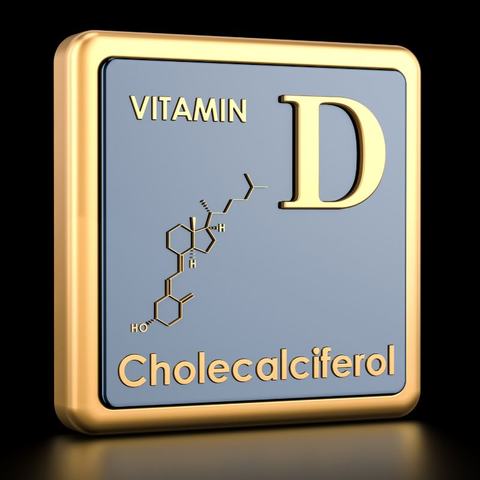
Vitamin D3 is the form of the sunshine vitamin that is naturally synthesized in the skin as a response to exposure to UVB rays from the sun. It is also found in animal products like fish liver oil and wool fat.
Compared to other forms of vitamin D, including vitamin D2 and other synthetic derivatives, vitamin D3 is better at increasing and maintaining blood levels of active vitamin D.
The high efficiency of this form of vitamin D makes it the best choice as a supplement and fortifying food.
Vitamin D3 is produced when 7-dehydrocholesterol, a natural molecule in your skin, reacts with UVB from the sun.
Several studies have shown that this form of vitamin D is better at increasing the level and maintaining vitamin D in the bloodstream than other forms.
What conditions are treated by vitamin D3?
Vitamin D in its cholecalciferol form is instrumental in managing and treating several health conditions. Several studies have revealed that the use of vitamin D3 is better than D2 in treating these conditions.
Its ability to regulate the metabolism of calcium and phosphorous makes it vital in treating and preventing various skeletal health conditions.
Some of the most common conditions targeted with vitamin D3 supplementation include:
Vitamin D deficiency
The most straightforward use of vitamin D3 supplements is in deficiency. People with severe vitamin D deficiency are often prescribed this form as it is better suited to improve and maintain the blood's vitamin D levels than other forms.
Rickets
Vitamin D deficiency in children can lead to bone deformities called rickets. Supplementation with vitamin D3 can be a great way to prevent the condition from worsening and manage the symptoms. While vitamin D2 is also prescribed in some cases, D3 is a much better option due to its faster action.
Osteoporosis
Demineralization of bones leads to leaching out of calcium and phosphorous, leading to brittle and porous bones- osteoporosis. Supplementation with vitamin D3 can prevent this demineralization, especially in post-menopausal women, and make their bones strong.
Psoriasis
It is a skin condition where vitamin D3 applied topically can relieve itching and inflammation. Topical vitamin D3 can improve the condition and reduce itching and discomfort.
Additionally, adequate levels of vitamin D3 are essential for maintaining a healthy immune system and mood regulation.
Regular supplementation with vitamin D3 can lead to a better health outcome and is recommended for people with limited exposure to sunlight.
What happens if I take vitamin D3 daily?
Taking vitamin D3 daily can have several health benefits, especially if you have a deficiency or are at risk of developing one. When you take daily vitamin D3 supplements, you are better able to absorb calcium and phosphorous from your diet.
The increased level of calcium in your blood causes your bones and teeth to strengthen and remain healthy.
In addition, the daily intake of vitamin D3 also boosts your immune system. It helps your body fight infections and might reduce the risk of developing autoimmune diseases.
It also plays a role in muscular function, and some studies suggest that it may also improve muscle strength.
Another effect of daily intake of vitamin D3 is improved mood and mental health.
Peer-reviewed studies have shown that daily supplementation of vitamin D3 can reduce the risk of depression and seasonal affective disorder (SAD) in high-risk groups.
Is vitamin D3 suitable for everyone?
Vitamin D3 is widely considered a safe supplement and may benefit most of the population. It is especially beneficial if you have vitamin D deficiency or have limited sun exposure.
For people deficient in vitamin D, supplementation is often the only way to replenish the levels of this essential vitamin. Supplementation with vitamin D3 ensures you get all the benefits of this nutrient without worrying about your diet or sun exposure.
On the contrary, people with sufficient levels of vitamin D in their bodies might not benefit from additional supplementation.
If you live in sunny areas and eat plenty of fatty fish, there is a good chance that you might not need any vitamin D supplementation.
That said, knowing whether you are deficient in this vital vitamin, irrespective of your diet or sun exposure, is crucial. You can consult your doctor and get a quick lab test done to confirm your vitamin D status before deciding on whether you need supplementation.
Who should avoid taking vitamin D3?
While vitamin D3 supplements have an excellent safety profile, there are certain situations where supplementation should be avoided.
Here are a few instances where vitamin D3 supplements must be avoided:
People with hypercalcemia
As vitamin D3 supplementation increases calcium absorption, it is contraindicated if you already have high blood calcium. If you continue to supplement with D3, the increased blood calcium can result in potentially toxic side effects.
People with kidney disease
People with compromised kidney function should stay away from vitamin D3 supplements. As the kidney converts vitamin D3 into its active form, a compromised kidney is unable to do so, and vitamin D3 can accumulate in the blood. In extreme cases, the accumulated D3 might precipitate toxicity.
Those with sarcoidosis or other granulomatous diseases
People with sarcoidosis tend to convert D3 in its active form more easily. As more active vitamin D accumulates in the body, you risk developing hypercalcemia.
People with a history of kidney stones
If you have had kidney stones, especially calcium oxalate kidney stones, you should stay away from vitamin D supplements. The enhanced calcium absorption tends to increase the risk of developing recurrent stones.
Your healthcare provider is the best person to recommend whether you need vitamin D supplements or not. It is imperative that you talk to your doctor before starting any vitamin D supplements.
Can I take vitamin D3 while pregnant?
Taking vitamin D3 supplements is not only safe during pregnancy but can also have beneficial effects on the mother and the unborn child as well.
Vitamin D is essential for fetal bone and muscle development, and supplementing with vitamin D3 during pregnancy ensures that the fetus is not deficient in this essential nutrient.
Adequate vitamin D3 level during pregnancy reduces the chance of gestational complications like diabetes, preterm birth, and low birth weight.
However, it is strongly recommended that you should talk with your OBGYN before starting any nutritional supplementation.
What are the potential side effects of vitamin D3?
Vitamin D3 is a very safe supplement with an excellent track record. However, there are specific side effects that you should keep in mind.
- Hypercalcemia: Excessive supplementation with vitamin D3 can lead to an unexpected increase in blood calcium, a condition called hypercalcemia. The situation can get tricky if you have pre-existing health conditions like hypertension or cardiac issues.
- Digestive issues: Some people may experience cramps or digestive problems with vitamin D3 supplementation. Constipation or diarrhea can occur, but in most cases, the GI effects are caused by high doses of the vitamin.
- Fatigue and dizziness: Over-supplementation with vitamin D3 can lead to dizziness and fatigue due to its effect on calcium metabolism.
While the risk of side effects with vitamin D supplements is quite low, you must not overdo the supplementation. Please talk to your healthcare provider to understand the potential risks and the correct dosage for maximum benefit.
What drugs interact with vitamin D3?
The interactions of vitamin D supplements with other medications are primarily due to the increase in calcium levels.
Some of the most commonly interacting drugs with vitamin D3 are:
Diuretics
These are a class of drugs that increase your urine output. They are prescribed for many health conditions, including hypertension.
When combined with vitamin D3 supplements, diuretics can prevent excretion of calcium, leading to the risk of developing hypercalcemia.
Seizure medications
Most seizure medications are liver enzyme inducers. It means that these medications increase the ability of the liver to metabolize vitamin D. As a result, when you are on anti-seizure medications, you might need a higher dose of vitamin D.
Weight loss drugs
Vitamin D is a fat-soluble vitamin and needs fat to be absorbed. Some fat-loss medicines that prevent the absorption of fat from the intestine can block vitamin D absorption.
What is the difference between vitamin D3 and vitamin D2?
Vitamin D2 and D3 are naturally occurring forms of vitamin D but differ in their chemistry and occurrence. Some of the differences are:
- While vitamin D2 is found in plants and fungi, vitamin D3 is exclusively found in animal products. When your skin is irradiated with UVB rays of the sun, the form of vitamin D it makes is D3.
- Apart from the source, the significant difference between these two forms lies in their potency and duration of action. Many studies have found that vitamin D3 is much more potent than D2 in raising and maintaining vitamin D levels in the blood.
- While both vitamin D2 and D3 ultimately get converted to 25-hydroxyvitamin D, the rate at which this happens differs quite a lot. D3 is more effective and gets converted faster than D2.
- Vitamin D3 is also able to bind to carrier proteins in the blood better than vitamin D2. Consequently, D3 is carried in the blood with higher efficiency. As more vitamin D3 is taken to the liver- the sight of vitamin D activation, more active vitamin D is formed.
- Another big difference between these two forms of vitamin D is their shelf life. Vitamin D3 is much more stable than D2, making it more stable in storage.
Taken together, it is no surprise that vitamin D3 is a much superior form of vitamin D and is preferred as a supplement over its counterpart.
What are the benefits of vitamin D?
Vitamin D is a fat-soluble vitamin with tremendous health benefits when taken in the proper form. Here are a few of the health benefits of vitamin D supplementation:
Improves bone health
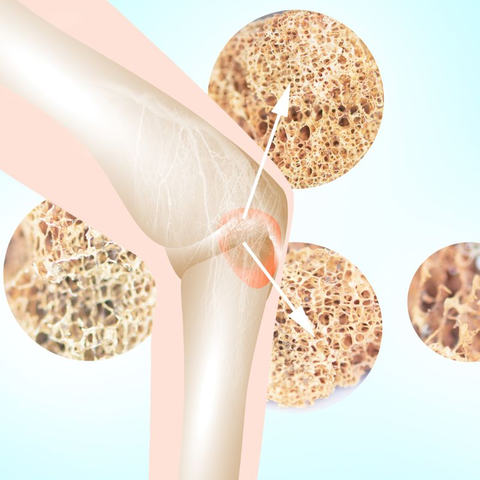
One of the crucial health benefits of vitamin D supplements is in maintaining bone health. Vitamin D improves the absorption of two essential minerals from the intestine—calcium and phosphorous.
Both these nutrients ensure that your bones are healthy and robust. When you have enough calcium and phosphorous, there is less chance of bone demineralization and osteoporosis.
When your diet is rich in vitamin D, especially in its D3 form, you have less risk of fracturing your bones. It prevents diseases like rickets in children and osteomalacia in adults.
Enhances immune health

Beyond the skeletal benefits, vitamin D supplements are also known to boost your immune system. Vitamin D enhances the pathogen-fighting ability of your monocytes and macrophages, a type of white blood cells.
Vitamin D also decreases inflammation, boosting your overall immune response.
Several studies have also found that vitamin D supplementation prevents the development of autoimmune conditions in the respiratory system.
Improves muscle function
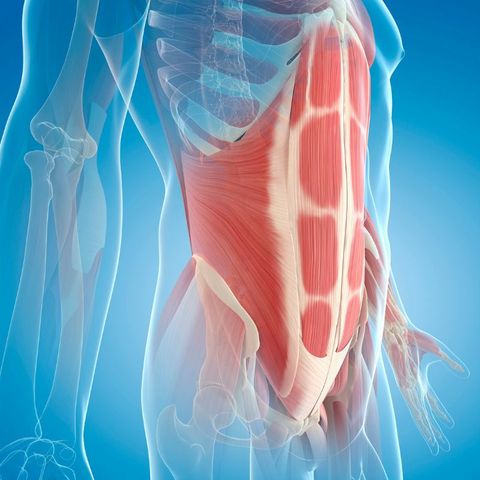
Vitamin D improves the function of your muscular tissue, especially the skeletal muscles. Studies have shown that vitamin D supplements might help the elderly with improved muscle function, reducing the risk of falls.
Protects against chronic health conditions
Research also suggests the role of vitamin D in protecting against chronic health conditions like cardiovascular disease and multiple sclerosis.
It states that vitamin D supplementation might protect against the development of certain types of cancers, particularly colon, prostate, and breast.
Improves mental health
Mounting evidence suggests that vitamin D has a crucial role to play in your mental health. Adequate levels of this vitamin are found to reduce the risk of depression.
It is thought that vitamin D might affect the dopamine and serotonin pathways of the brain to elevate mood.
Given the wide range of benefits of vitamin D, it is no surprise that it is one of the fastest-growing supplements on the market.
Including this crucial nutrient in your supplement regimen will ensure that you are not only in good physical health but also in good mental health.
You may also like: Discover 11 Incredible Ways Vitamin D Aids Your Body.
What are common vitamin D deficiencies?
Vitamin D is an essential micronutrient involved in various biological processes. Unfortunately, the deficiency of this crucial nutrient is quite common in all strata of society.
The most common deficiencies of vitamin D include the following:
Rickets in children
Vitamin D is a crucial nutrient responsible for the development of bones and muscles in young children. When there is a deficiency in this nutrient, children can't absorb calcium from their diet, leading to bone malformation.
Some of the most common effects of rickets can be seen in the bones of the legs, pelvis, and skull.
Children with rickets have characteristic bow legs and weak bone structures. If not corrected, the condition can make children vulnerable and susceptible to fractures and injuries.
Osteomalacia in adults
It is a vitamin D deficiency symptom in adults. Adults with low vitamin D often suffer from soft bones, widespread bone pain, and muscle weakness. People with chronic deficiencies have a higher risk of fracturing their limbs, spine, and hips.
Osteomalacia can significantly affect the quality of life of patients due to the pain and reduced mobility.
Low immune function
As the bioactive vitamin D plays a vital role in your immune system, its deficiency can impact your body's ability to fight against infections.
Vitamin D deficiency has been shown to increase the vulnerability to infectious diseases like influenza and tuberculosis.
Furthermore, there is mounting evidence suggesting a low level of vitamin D might increase the chances of autoimmune health conditions like type 1 diabetes and multiple sclerosis.
To learn more, read: Understanding Vitamin D Deficiency: Causes, Symptoms, and Remedies.
How do I improve my vitamin D levels?
Given the crucial role that vitamin D plays in your health, it is imperative that you take steps to improve its levels. Here are some strategies that you can implement to improve your vitamin D levels:
Sun exposure
Your skin can synthesize vitamin D when exposed to UVB rays of the sun. Spending 20-30 minutes in the sun several times a week can be a great strategy to boost your vitamin D levels.
That said, it is crucial to balance the risks and benefits of sun exposure. Always consider using sunscreen after the initial unprotected exposure.
Dietary sources
Several foods are rich in vitamin D, like fatty fish, egg yolks, and milk. Include these foods in your diet to replenish vitamin D.
Supplementation
For many, exposure to the sun or dietary changes might not be sufficient, making supplementation necessary.
While there are several vitamin D supplements on the market, it is imperative that you choose the one that is natural and offers high-quality vitamin D3.
Check out WhyNotNatural’s Organic Vitamin D3 With K2 capsules with Spirulina. The specially formulated veggie capsules are made with 100% organic ingredients to give you vitamin D3 in an easily absorbable formulation.
How much vitamin D supplement should I take every day?
The recommended dosage of vitamin D varies with several factors, including age, sun exposure, and diet. Generally, adults up to the age of 70 should get 600-800 IU per day. Those who are above 70 should bump their intake to 800-1000IU daily.
However, if you are deficient, you may require a higher dosage, especially during the initial period.
Please talk to your doctor to find the best dosage, depending on your deficiency levels and other factors.
What is the best time to take vitamin D?
You can take vitamin D supplements any time of the day, but some evidence suggests that taking them with a meal containing fats can enhance absorption.
As vitamin D is a fat-soluble vitamin, consuming it along with your meals might improve its effectiveness.
Consistency is key when supplementing with vitamin D. Choose a time that suits you and stick to it.
Remember that it will take time to see results, and you should prepare to continue using the supplements for a long time, making it a lifestyle rather than a quick fix.
How do I choose the best vitamin D supplement?
Picking the right vitamin D supplement is important if you want to get the best results from your supplementation.
Here are a few criteria that you should always look for when picking the best vitamin D supplement:
The form of vitamin D
As we discussed earlier, two forms of vitamin D2 and D3 are widely used in the supplement industry. While both of them can provide you with vitamin D, cholecalciferol, or vitamin D3 is much superior to D2.
Vitamin D3, found in animal products, is better able to maintain high levels of active vitamin D in the blood. So, when you are picking a supplement, it is wiser to go with D3 than D2 or other synthetic forms of the vitamin.
The dosage
When picking a vitamin D supplement, ensure it has the correct dosage. Your required dose might change significantly depending on your current vitamin D level, diet, and lifestyle.
Ensure the supplement you pick has enough vitamin D3 to cover your deficiencies.
Quality and purity
There is no point in supplementing with a sub-par nutrient. Always make sure that the vitamin D present in the supplement comes from natural and organic sources. It is better to steer clear of synthetic derivatives of vitamin D.
Dietary restrictions
If you have a restricted diet, such as vegetarianism or veganism, look for vitamin D3 supplements derived from lichen, a vegan-friendly source, instead of fish oil or sheep's wool (lanolin).
The dosage form
While most vitamin D supplements come in the form of a capsule or tablet, other dosage forms are also available.
If you find swallowing tablets or capsules difficult, consider WhyNotNatural’s Organic Vitamin D3 Liquid Drops with K2. These liquid drops are easy to take and provide a high amount of organic vitamin D3 that is 100% natural and highly bioavailable.

Takeaway: Choose the right vitamin D supplement for optimal health
Navigating the complexities of vitamin D supplementation requires a deeper understanding of its various forms, benefits, and safe and effective usage considerations. While both forms, vitamin D2 and D3, are effective, cholecalciferol or vitamin D3 offers the most benefit.
Exposure to sunlight and adding vitamin D-rich foods to your diet can help improve the levels of this vitamin in your body. However, diet and sunlight exposure might not be enough for many, necessitating supplementation.
Make sure you are picking supplements that offer a natural, organic form of vitamin D3 that is easy on the digestive system and faster to absorb.
In conclusion, a holistic approach to vitamin D intake, including dietary nutrition, sun exposure, and supplementation, would be the ideal way to build a healthy foundation.
Get WhyNotNatural's 100% organic vitamin D3 supplements for your health boost! Tap into the sun's energy and boost your bone health and immune system cleanly with our organic formulation.
Don't forget to subscribe to our newsletter to learn which supplements to take, how to combine them for maximum benefit, and other health tips to boost your energy and vitality. Plus, discover natural strategies to reduce hormonal imbalances, stress, and anxiety. Click here to get started!
